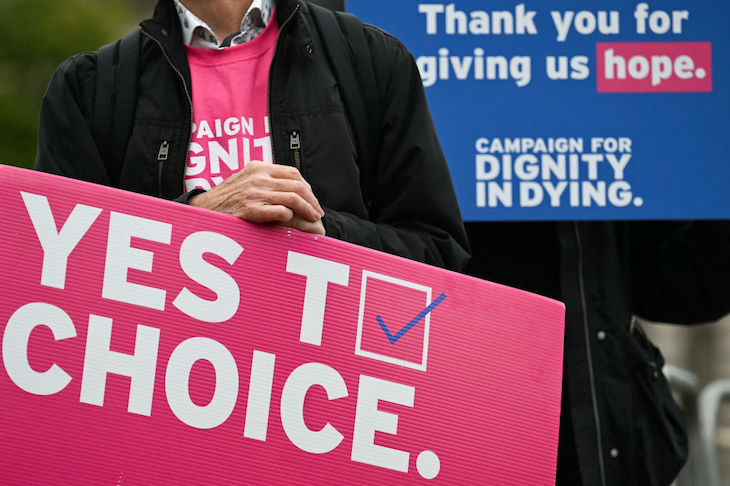It was when my newly-implanted bone marrow failed to produce the blood cells that keep all of us alive that I first thought seriously about my own death. It was my second bout of cancer. The first one had been a cakewalk by comparison: a few months of chemotherapy and radiotherapy and, Bob’s your uncle, I was cured. The second, ten years later, was much nastier and involved industrial quantities of chemotherapy culminating in a bone marrow transplant. For several months it looked like the transplant had failed and I confronted the possibility that I would soon reach the end of the road.
If you don’t like the idea of assisted dying, don’t seek medical assistance to arrange your own death
In a free society everyone is entitled to express their opinion. But with respect to all those who have felt qualified to pronounce on the rights and wrongs of assisted dying, it is only when you face your own death as an immediate prospect that you discover how you really feel about it. At that moment in the summer of 2017 my strong instinct was this: my death is nobody’s business but my own and my husband’s. If I was going to die I wanted to have maximum control over the manner of my passing and not have any priest or public authority tell me what level of suffering I must endure before the end.
The assisted dying bill drafted by Kim Leadbeater MP defines very narrowly the circumstances in which someone would be able to seek medical assistance to arrange their own death. They would have to be suffering from a terminal illness, be judged independently by two doctors to be within six months of their natural end and mentally equipped to make a decision to end their life. A High Court judge would then have to confirm that they had reached the decision independently and weren’t being coerced or put under pressure. This makes the proposed law in the UK far more restrictive than the law in operation in Canada, and much more like – but still stricter than – the laws that have stood for many years in the USA and Australia.
People suffering from dementia and other diseases that diminish mental capacity would not be able to avail themselves of an assisted death. Rightly in my view because I don’t see how a theoretical decision taken years in advance can be relied on as a sufficient basis for terminating someone’s life when they are incapable of confirming that this is what they still want. So under the proposed law the number of people who will pass all the tests and qualify for an assisted death will be very small – and the experience in Oregon shows that many of those who do qualify, having reassured themselves that they can go ahead if the suffering becomes unbearable, end up not needing to go through with it.
When I was campaigning for same-sex marriage as a liberal Conservative MP under the coalition, I found that one of the most powerful arguments was this: if you don’t like the idea of same sex marriage, don’t marry someone of the same sex. The same principle applies to assisted dying. If you don’t like the idea of assisted dying, don’t seek medical assistance to arrange your own death. If liberal democracy means anything it is this: that every individual should be free to live their life in the way they want, so long as doing so does not harm other people or interfere with their freedom to live their lives as they want. Just as none of the opponents of same-sex marriage could explain why my marriage to another man would in any way diminish the quality of their lives or the value of their marriages, so no opponent of assisted dying can explain why allowing a terminally ill patient the possibility of ending their life a few months early will have any negative impact on the lives or deaths of other people.
Many of the MPs who will vote on the assisted dying bill entered Parliament a few months ago. This will be the first time they have been offered the chance to enact a liberal reform that will relieve unnecessary suffering. For many it may be the only chance they get as these bills don’t come around very often. To them I say this with the perspective of someone at the other end of a career in politics. Budgets and bills come and go. Important though they seem at the time, most are soon overtaken by events. Few things that you will do in Parliament will endure and be remembered as significant achievements decades from now. Same-sex marriage has endured and stands as one of the things that makes all those MPs who voted for it most proud. So will assisted dying if you help to make it law. This is a moment when you should ignore the noises off – the Secretary of State for Health and the Archbishop of Canterbury each has only one vote and their opinions count for no more than your own. Follow your conscience, stand up for your convictions and vote to make our society a little bit more liberal and humane.







Comments